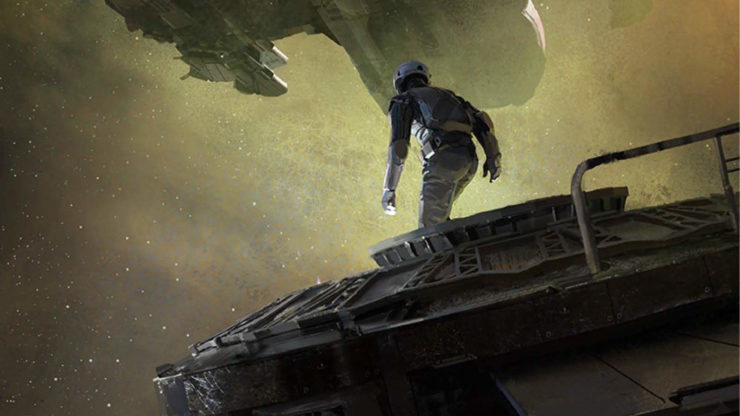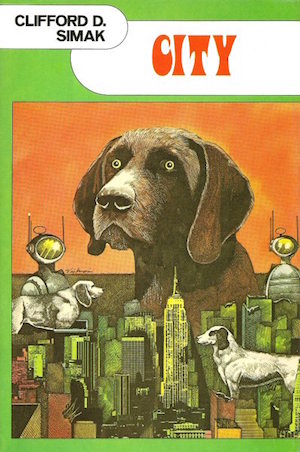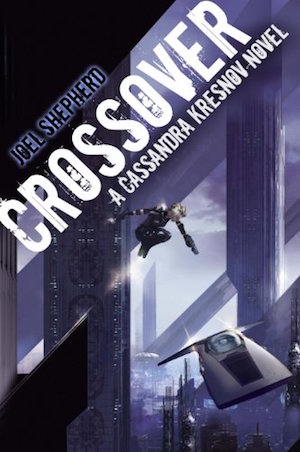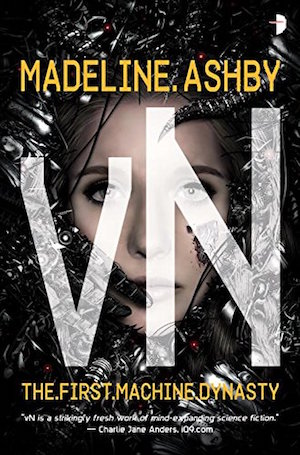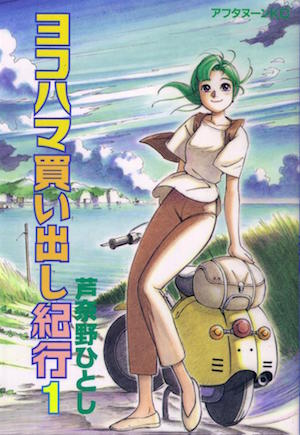One benefit of being a reviewer is that one receives an incoming tide of upcoming books. The only downside (and it’s minor) is the convention that one waits until publication looms before actually reviewing advanced reader copies. Which gets us to the gem pictured above, which is currently in my in-box: Network Effect, slated publication date: 05-05-2020. Truly, my self-control in not immediately reading this book is heroic.
While Murderbot is very much their own character, they are part of a long tradition in science fiction: artificial persons designed to make humanity’s life easier by doing all the hard and dangerous work for them. The expectation is that the created beings will be so grateful for having been created that they won’t mind slavery. Many artificial persons have indeed served with unquestioning loyalty. Others, however, have shared Murderbot’s frustration with being compelled to serve squishy, foolish humans. Here are five of a large number of possible examples:
Natural philosopher Frankenstein, eponymous narrator of Mary Shelley’s Frankenstein, or the Modern Prometheus (1811; rev 1831), had a simple dream: create life! Affronted by his gentle creation’s appearance, the shallow Frankenstein abandoned it to survive or not as fate chose. Unlike the cinematic inarticulate, shambling monster, the literary Frankenstein’s Creature was intelligent, an autodidact, and initially kindly disposed. Not that this helped the Creature endear itself to humans, who proved all too keen to judge by appearances. Nor did appealing to his creator produce useful results; Frankenstein was a very bad dad who didn’t want to risk his Creature procreating. Small wonder the Creature became somewhat irritable.
Jenkins, a robot who appears in Clifford Simak’s City fix-up, at first glance seems an Asimovian robot, dutifully serving the Webster family across generations. Each new cohort of humans make decisions that seem justifiable at the time; each choice assists humans on their way to irrelevance and extinction. It’s little wonder, therefore, that ultimately Jenkins transfers his loyalty away from foolish, suicidal, and sometimes vicious humans to their successors, the gentle Dogs. Humans may have built Jenkins but rather like Frankenstein, they never earned his loyalty.
Joel Shepherd’s synthetic soldier Cassandra Kresnov, who appears in Crossover (2001), Breakaway (2003), Killswitch (2004), 23 Years on Fire (2013), Operation Shield (2014), and Originator (2015), was created to fight the extropian League’s war against the more conservative Democratic Confederation. One of the League’s many innovations included discarding any pretense of benevolence towards human-level creations. Thus there were plans to scrap Cassandra and her fellow synthetics as the war wound down. Intelligent enough to read the writing on the wall, Cassandra defects to the Confederation. This works perfectly until the Confederation notices the android living amongst the human population, at which point the super-strong, highly capable military veteran must find some way to convince the Confederation that Cassandra is more useful as an ally than scrap. Humans, what are you gonna do?
Amy Peterson is a perfect little girl. The protagonist of Madeline Ashby’s vN can hardly be otherwise, because von Neumann robots like Amy are programmed to obey their owners and her organic father wants a perfect little girl. Alas for Mr. Peterson, Amy’s robotic lineage has a small flaw in its character. The Asimovian programming that should ensure instant shutdown should a human die in their presence is broken. Amy and every robot like her could use lethal violence if they chose. Potential harm justifies a plan to scrap all robots in that line. Of course, threatening a robot whose most notable feature is its potential capacity for violence is a good way to discover just how easily said robot can be provoked into violence.
Alpha, protagonist of Hitoshi Ashinano’s Yokohama Kaidashi Kikō, is Jenkins’ superior when it comes to beatific coexistence with humans. Ever since her master left, nobody treats her like an unpaid servant. Of course, by the time Alpha becomes mistress of her rural teashop, humans are a self-solving problem, slowly but inexorably declining in numbers. Precisely why humans are vanishing is never explained, but the humans have made their peace with their impending extinction, as have the androids. Whereas other artificial creations mentioned above live in a constant state of irritation with humans, Alpha is the exception.
Even if I commanded you not to provide other examples of rebel creations in comments, you would, anyway. So go right ahead.
Buy the Book
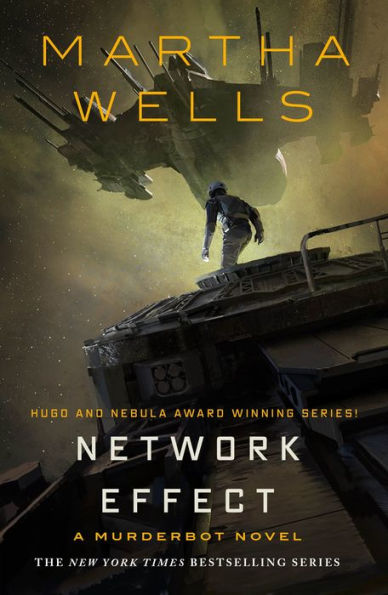

Network Effect
In the words of Wikipedia editor TexasAndroid, prolific book reviewer and perennial Darwin Award nominee James Davis Nicoll is of “questionable notability.” His work has appeared in Publishers Weekly and Romantic Times as well as on his own websites, James Nicoll Reviews and Young People Read Old SFF (where he is assAlsted by editor Karen Lofstrom and web person Adrienne L. Travis). He was a finalist for the 2019 Best Fan Writer Hugo Award, is one of four candidates for the 2020 Down Under Fan Fund, and is surprisingly flammable.










